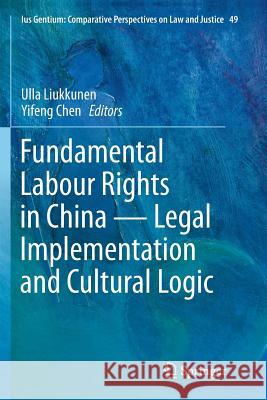Fundamental Labour Rights in China - Legal Implementation and Cultural Logic » książka
topmenu
Fundamental Labour Rights in China - Legal Implementation and Cultural Logic
ISBN-13: 9783319794532 / Angielski / Miękka / 2018 / 269 str.
Kategorie:
Kategorie BISAC:
Wydawca:
Springer
Seria wydawnicza:
Język:
Angielski
ISBN-13:
9783319794532
Rok wydania:
2018
Wydanie:
Softcover Repri
Ilość stron:
269
Waga:
0.40 kg
Wymiary:
23.39 x 15.6 x 1.52
Oprawa:
Miękka
Wolumenów:
01
Dodatkowe informacje:
Wydanie ilustrowane











